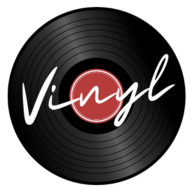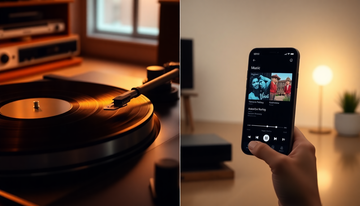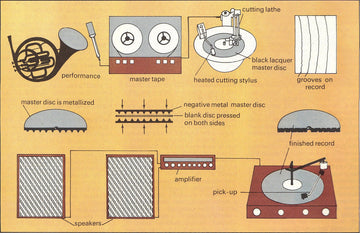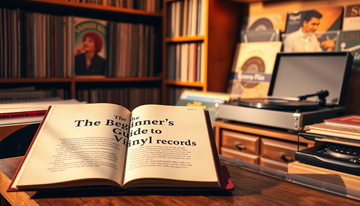In the ever-evolving world of music, the debate between vinyl records and digital formats has been a topic of endless discussion. As technology continues to advance, music enthusiasts are faced with the dilemma of choosing the format that best suits their listening preferences and needs. In this blog post, we'll explore the pros and cons of vinyl records and digital music, helping you make an informed decision on which format is right for you.
The Resurgence of Vinyl Records
Vinyl records have experienced a remarkable resurgence in recent years, with a growing number of music lovers rediscovering the charm and warmth of this analog format. The tactile experience of handling a vinyl record, the ritual of carefully placing the needle on the grooves, and the rich, full-bodied sound have all contributed to the vinyl's enduring appeal.
One of the primary advantages of vinyl records is the superior sound quality they offer. Analog recordings capture the nuances and subtleties of the original performance in a way that digital formats often struggle to replicate. The warm, natural tones and the absence of digital compression artifacts create a listening experience that many audiophiles find more immersive and true to the artist's vision.
Moreover, vinyl records offer a unique visual and physical experience that digital formats cannot match. The artwork and liner notes printed on the album covers and sleeves provide a tangible connection to the music, allowing listeners to fully immerse themselves in the album's concept and design. This tangible aspect of vinyl records has become increasingly important for music enthusiasts who value the tactile and emotional connection to their music.
The Convenience of Digital Music
On the other hand, digital music formats have revolutionized the way we consume and access music. The rise of streaming services, such as Spotify, Apple Music, and Amazon Music, has made it easier than ever to access a vast library of music at our fingertips. With just a few taps on a smartphone or a click on a computer, we can instantly stream our favorite songs or albums, without the need for physical media.
The convenience of digital music is undeniable. Listeners can create personalized playlists, discover new artists, and enjoy music on the go without the burden of carrying physical media. The portability and accessibility of digital formats have made music consumption more seamless and integrated into our daily lives.
Additionally, digital music offers the advantage of superior storage and organization. With the ability to store thousands of albums on a single device, music enthusiasts can curate their collections with ease, creating backups and accessing their music from multiple devices. This level of organization and accessibility is a significant benefit for those with extensive music libraries.
The Debate: Vinyl vs. Digital
When it comes to the debate between vinyl records and digital music, there is no one-size-fits-all answer. Both formats have their unique strengths and appeal to different types of listeners.
For those who prioritize sound quality and the tactile experience of music, vinyl records offer a more immersive and authentic listening experience. The warm, analog sound and the physical connection to the music can be a powerful draw for audiophiles and music enthusiasts who value the emotional and sensory aspects of music consumption.
On the other hand, digital music formats excel in terms of convenience, accessibility, and organization. The ability to stream music on-the-go, create personalized playlists, and access a vast library of music with ease make digital formats an attractive option for listeners who prioritize convenience and flexibility.
Striking a Balance
Ultimately, the choice between vinyl records and digital music formats comes down to personal preference and the individual's listening habits and priorities. Many music enthusiasts have found a way to strike a balance, enjoying the best of both worlds.
Some listeners may opt to collect and cherish their favorite albums on vinyl, while also taking advantage of the convenience and accessibility of digital streaming for their day-to-day music consumption. Others may choose to maintain a hybrid approach, building a vinyl collection for their most beloved albums while using digital formats for discovery and exploration.
The beauty of the vinyl vs. digital debate is that there is no right or wrong answer. It's a personal journey of discovering the format that resonates most with your individual music preferences and listening experiences.
Conclusion
In the end, the choice between vinyl records and digital music formats is a highly personal one, reflecting the unique preferences and priorities of each music enthusiast. Whether you're drawn to the warm, analog sound of vinyl or the convenience and accessibility of digital formats, there is a place for both in the ever-evolving world of music consumption.
As you navigate this decision, consider your listening habits, the importance you place on sound quality and the physical experience, and your overall music consumption needs. By understanding the strengths and limitations of each format, you can make an informed choice that will enhance your musical journey and bring you closer to the music you love.






